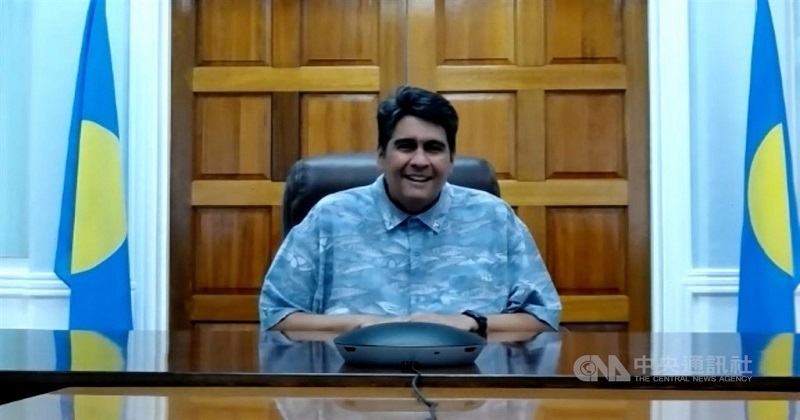
Whipps, 52, became Palau’s President last year after beating an opponent who favoured closer ties with Beijing.
He heads one of the world’s smallest nations, but Surangel Whipps says Palau will not be dominated by anyone into deciding its future – least of all by China.
The Pacific nation of around 21,000 people is one of just 15 countries that still know Taiwan over China, something Whipps is resolute will not change under his watch despite Beijing’s pressure campaign.
“If we were the last man standing we should be because Taiwan has been with us from the beginning,” he told AFP via video call this week after returning from a trip to Taipei, where the two associates set up a coronavirus travel bubble for tourists.
China sees Taiwan as its breakaway region to be reunified, by power if necessary. Beijing has decreased Taiwan’s remaining strategic partners using a mixture of carrots and sticks.
In 2019, it had two successes in the Pacific, persuading the Solomons and Kiribati to switch sides. Only Palau, the Marshall Islands, Nauru and Tuvalu remain.
Whipps has appeared as the most vocally China-sceptical leader in the Pacific, something he says is fabricated from both Beijing’s more aggressive stand under President Xi Jinping, and his own interactions with Chinese officials.
“I’ve had meetings with them and the first thing they said to me before, on a phone call, was ‘What you’re doing is illegal, recognising Taiwan is illegal. You need to stop it’,” he recalled.
“You know, that’s the tone they use,” he added. “We shouldn’t be told we can’t be friends with so and so.” Whipps said he would often receive calls on his mobile from Chinese officials in the run-up to last year’s elections.
“It would ring for like 16 times,” he said. “After the elections, I have not taken their calls.”
Tourist ban of China
Beijing has largely decided for the diplomatic stick when it comes to Palau in recent times.
Positioned around 900km east of the Philippines, Palau saw dangerous growth in the number of Chinese tourists in the early half of the last decade.
But in 2017, China suddenly prevented package tours, a common move to apply economic stress. That decision, Whipps believes, backfired because it heightened Palauan awareness of Chinese pressure.
“That’s just an example of how it’s kind of bait,” he said, reviewing the Chinese position as: “You do this for me, then we expect this and this.” That scepticism is music to Washington’s ears as it tries to shore up alliances in the Pacific to counter Beijing’s growing regional clout.
Palau was one of a group of Pacific islands governed by the United States in the aftermath of World War II.
It became independent in 1994 but maintains close links with Washington. Like other nearby Pacific nations, it has a 50-year defence agreement with the United States known as the Compact of Free Association (Cofa).
US forces are under Japanese pressure to pull down their massive bases in Okinawa and are looking to expand across the Pacific.
Last year, then-defence secretary Mark Esper became the first Pentagon chief to visit Palau.
Whipps says he is keen to see more US military bases, something he expects will make his nation less reliant on tourism. “I think there’s an opportunity for everybody to gain from this,” he said.
A key battlefield during World War II, Palau forms part of the “second island chain” that US military administrators see as key barriers to China controlling the Pacific.
“The Japanese back then saw the strategic importance, and I think it still remains today,” Whipps said.
When Whipps has spent most of his life in Palau, he was born in Baltimore, studied in the United States and speaks with an American-tinged accent. He discarded US citizenship to become a Palau representative. However, he remains fervently pro-US, adding Palau – which has registered zero coronavirus cases – was on track to have all adults inoculated by May thanks to vaccines supplied by Washington under Cofa.
He also called Taiwan, which began diplomatic relations with Palau in 1999, as more than just a partner.
The island’s original population are Austronesians and it was their ancestors who spread out across the Pacific tens of thousands of years ago.
“There’s a shared culture and history,” Whipps said.
Beijing’s push to keep Taiwan alone, especially during the coronavirus pandemic, has only heightened international sympathy for Taipei, he argued.
“Taiwan is a free country,” Whipps said. “They’re a democracy and that should be respected.” “As diplomatic allies, you can’t just throw that out the door.”

Post Your Comments